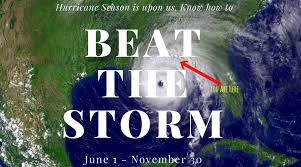
One issue that may arise because of storms, extreme heat or natural catastrophe is the loss of electrical power. While power outages are often, merely a nuisance, extended power interruptions can cause problems ranging from loss of perishables (particularly frozen and refrigerated foods), damage to property that is vulnerable to temperature extremes, and personal endangerment caused by overheating or freezing.

you could go days without electricity.
Many homeowners who, for various reasons, are prone to suffering power loss, use an option to protect themselves; home generators. Such generators are capable of temporarily supplying electrical power to run household appliances and utilities. Home generators come in two basic forms:

- Portable Generators – lower-powered units that operate externally from a home’s wiring system.
- Standby Generators – high-power units that are attached directly to a home’s wiring system and which takes over automatically when utility power is interrupted
Regardless the type, it is critical to take proper precautions to make sure that no harm or injury results from their use.
With standby generators, installation should be performed by a licensed electrician and installations should be inspected by authorized persons before initial use. Installations should include a proper transfer switch and local utilities should be notified that an installation has occurred. Transfer switches insure that electrical power is properly and safely switched from the generator to a utility supply when power is restored.
Portable generators have a host of procedures that should be adhered to, such as the following:
- generators should be located outside the home, in an area that provides proper ventilation and which shields the unit from moisture
- generators should NOT be located near window or doors since carbon monoxide exhaust could seep into a home
- care must be taken to prevent burns due to contact with hot generator parts
- generators should never be plugged into house outlets. This can cause back feeds which results in damaging wiring and endangering utility company personnel (backed power can be transmitted through power lines at fatal power levels)
- proper, exterior-rated cords should be the only kinds used with generators
- generator power should be matched with essential power needs (core appliances, heating/cooling) and not overloaded (which could damage the generator and powered appliances, etc.)
- fuel for generators should be stored properly and refueling should take place ONLY after the generator has cooled after being turned off
Generators can be a tremendous method to compensate for temporary power outages but care must be taken to be sure they don’t generate more problems than solutions.
COPYRIGHT: Insurance Publishing Plus, Inc. 2017
All rights reserved. Production or distribution, whether in whole or in part, in any form of media or language; and no matter what country, state or territory, is expressly forbidden without written consent of Insurance Publishing Plus, Inc.

 Contact
Contact
 Email an Agent
Email an Agent

 Click to Call
Click to Call Get Directions
Get Directions


